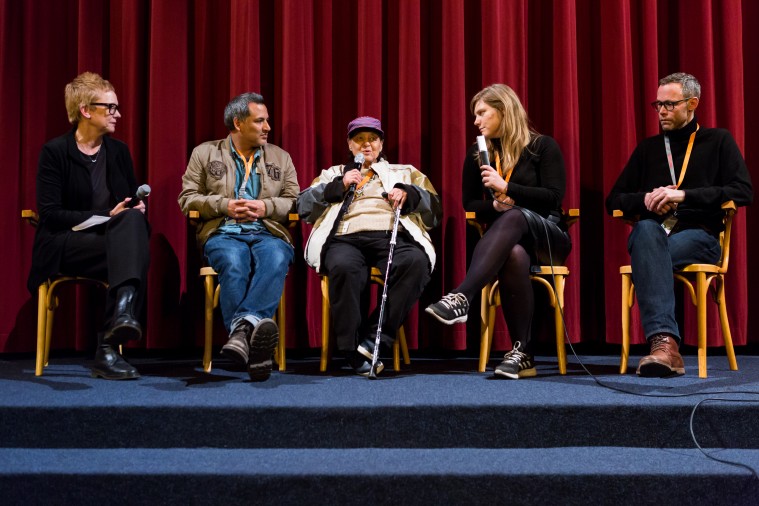Nuestra voz de tierra, memoria y futuro
Our Voice of Earth, Memory and Future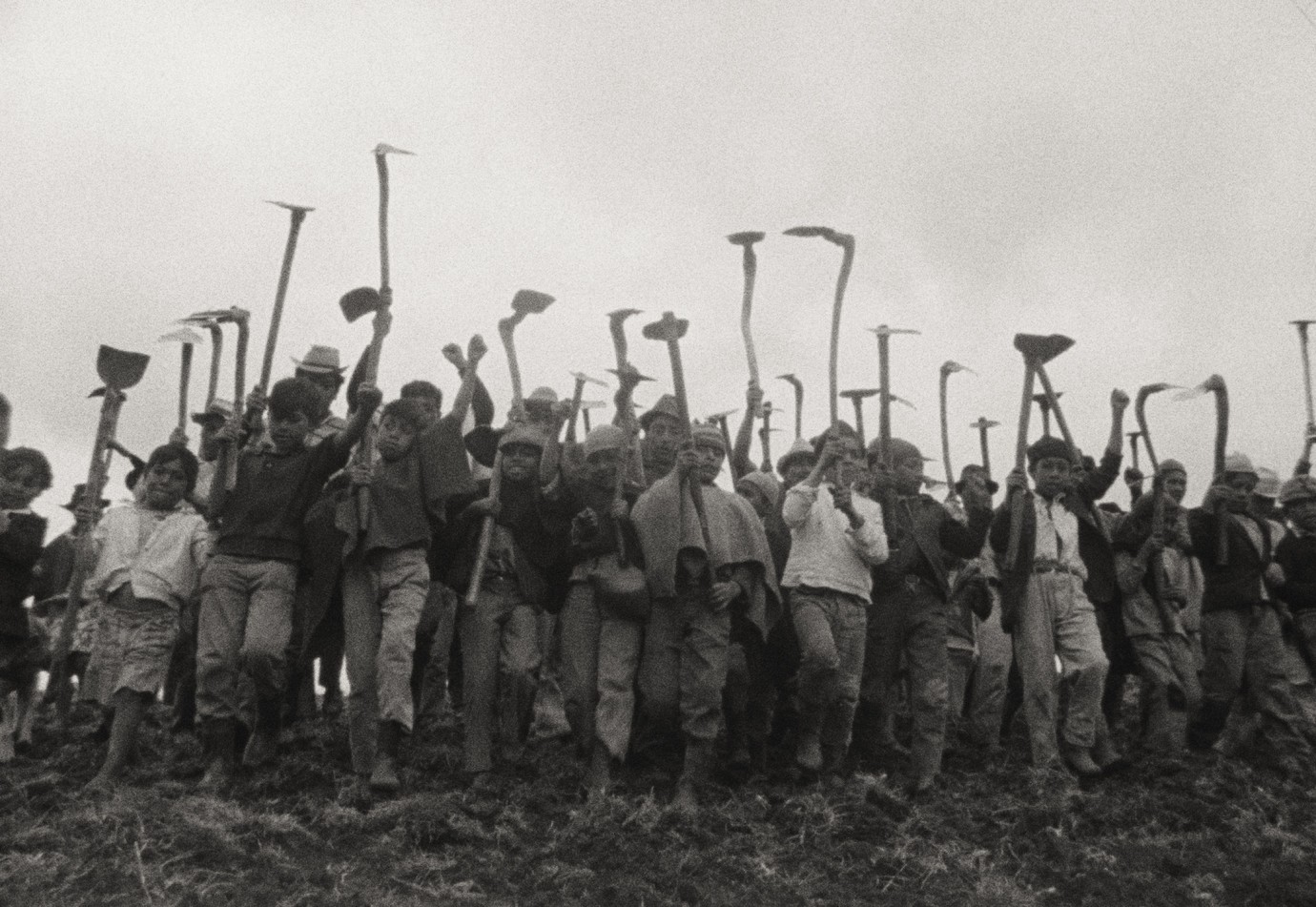

Nuestra voz de tierra, memoria y futuro | Our Voice of Earth, Memory and Future by Marta Rodríguez, Jorge Silva
COL 1981, Forum
© Fundación Cine Documental/ Investigación Social

Nuestra voz de tierra, memoria y futuro | Our Voice of Earth, Memory and Future by Marta Rodríguez, Jorge Silva
COL 1981, Forum
© Fundación Cine Documental/ Investigación Social
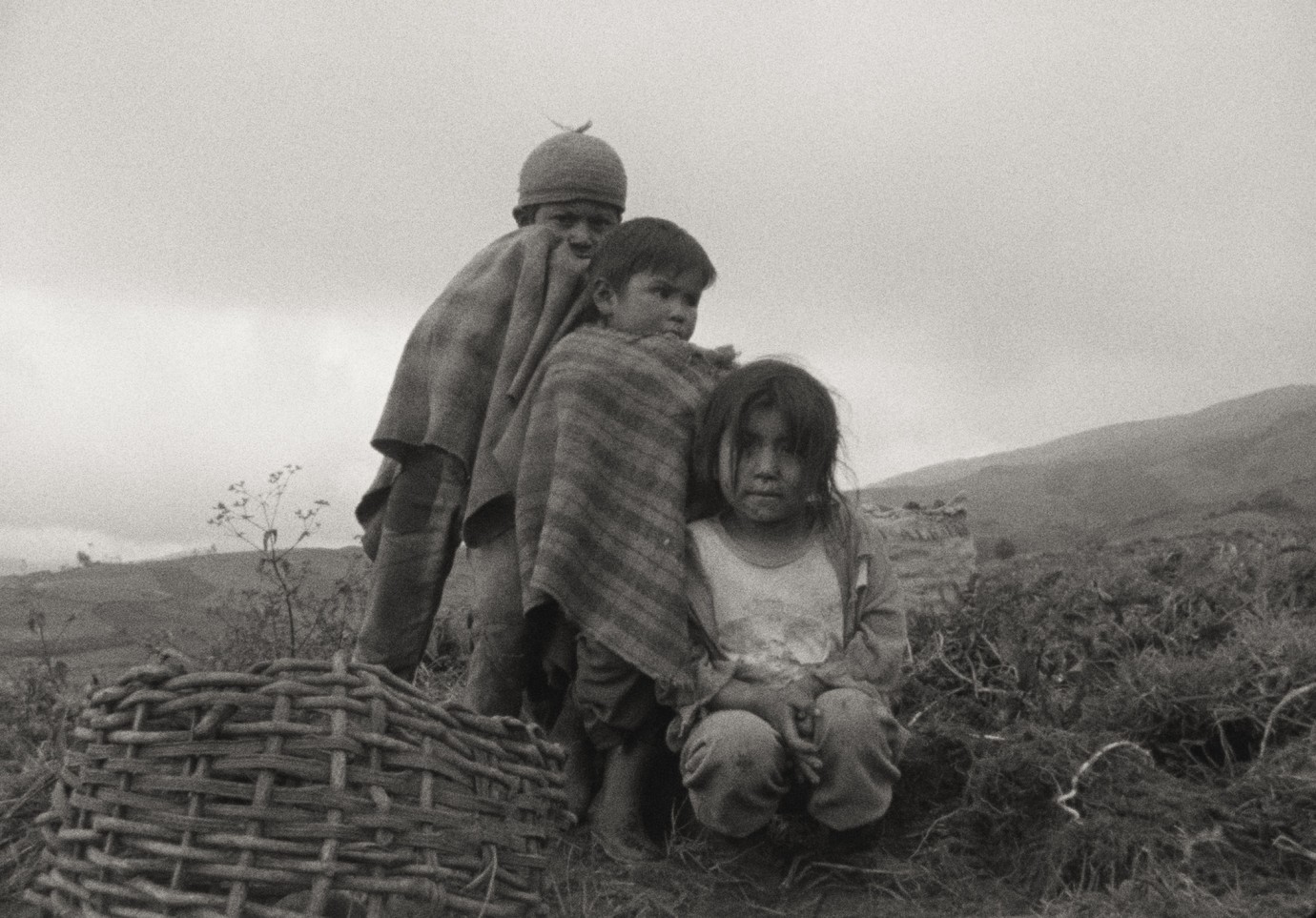
Nuestra voz de tierra, memoria y futuro | Our Voice of Earth, Memory and Future by Marta Rodríguez, Jorge Silva
COL 1981, Forum
© Fundación Cine Documental/ Investigación Social
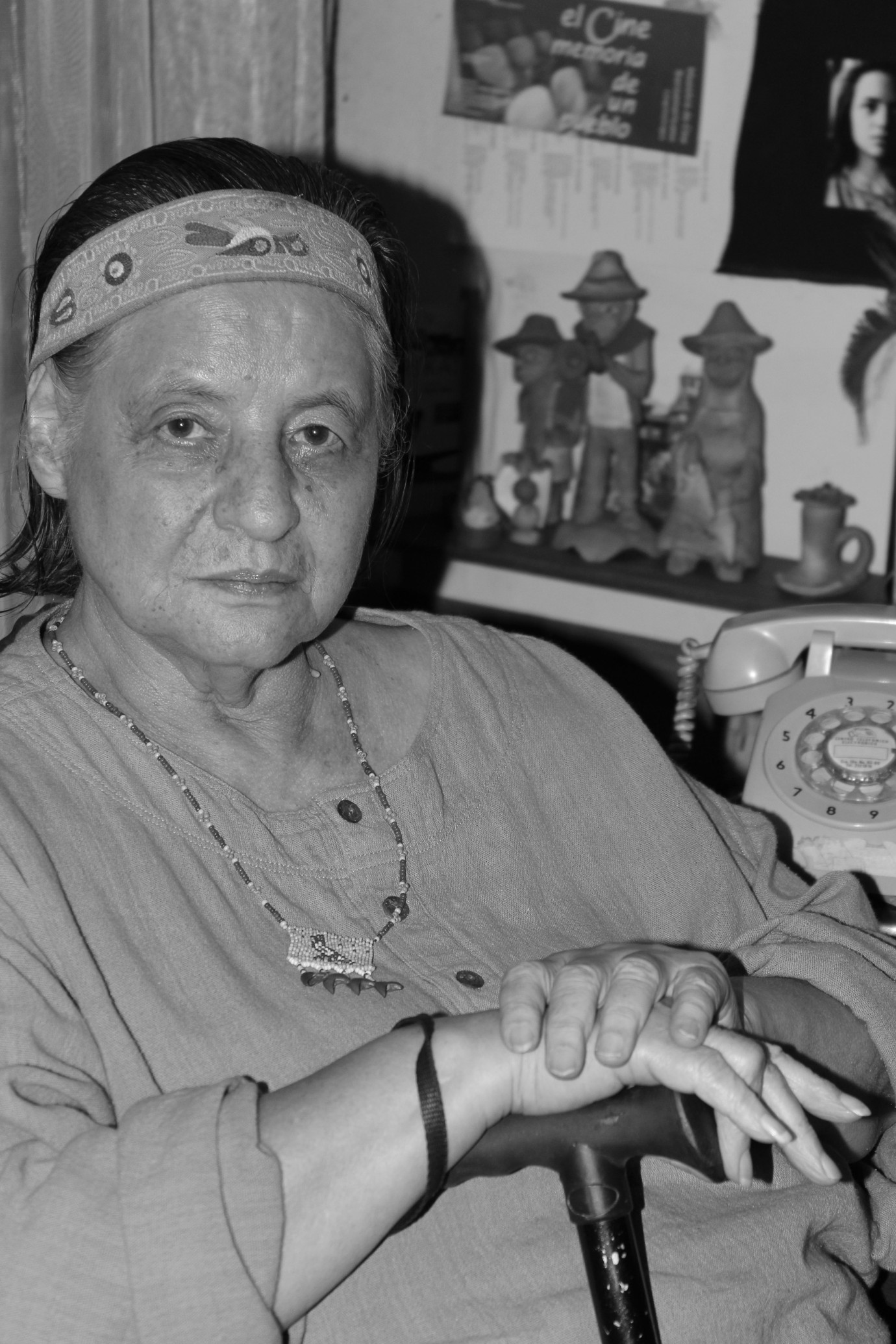
Marta Rodríguez
Nuestra voz de tierra, memoria y futuro | Our Voice of Earth, Memory and Future by Marta Rodríguez, Jorge Silva
COL 1981, Forum
© Felipe Colmenares
Crew
| Director | Marta Rodríguez, Jorge Silva with the support of the indigenous community of Coconuco/Cauca, indigenous people from Coconuco, Mexico, Peru and Bolivia |
| Screenplay | Marta Rodríguez, Jorge Silva |
| Editing | Marta Rodríguez, Jorge Silva, Caita Villalón |
| Music | Jorge López, Benjamin Yépez |
| Sound Design | Lucy Martínez, Santiago García, Juan Márquez |
| Sound | Ignacio Jiménez, Eduardo Burgos, Nora Drufovka |
| Production Design | Marta Rodríguez, Jorge Silva |
| Costumes | Pedro Alcántara |
| Make-Up | Ricardo Duque |
| Producers | Marta Rodríguez, Jorge Silva with support of the Cuban Film Institute, Wim Koole Ikon TV |
| Digital Restoration | Arsenal – Institut für Film und Videokunst |
World sales
Fundación Cine Documental / Investigación Social

Stefanie Schulte Strathaus, Lucas Silva, Marta Rodríguez, Kate Hartnoll, Markus Ruff
Film talk after the screening.
Nuestra voz de tierra, memoria y futuro · Forum · Feb 12, 2019
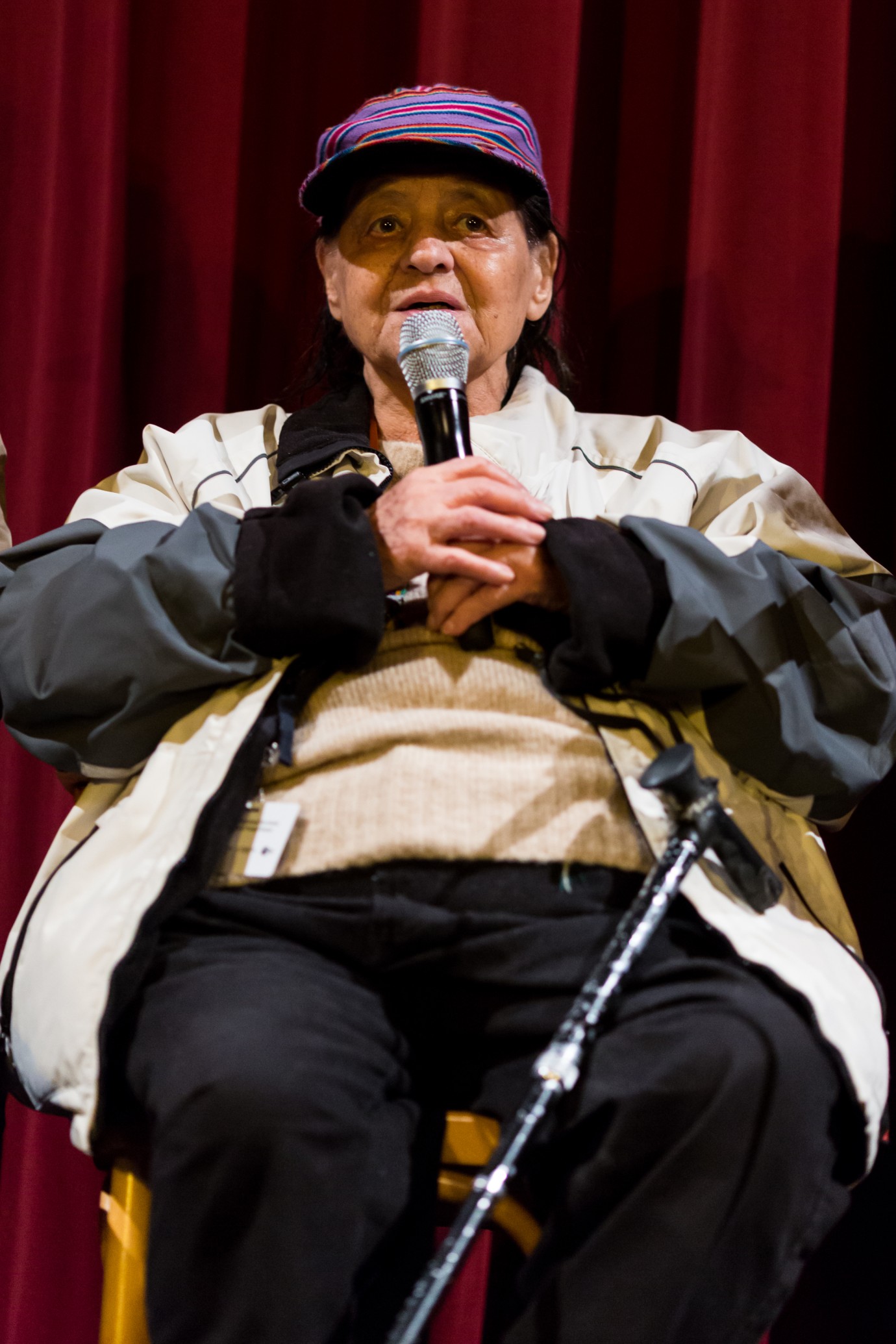
Marta Rodríguez
The director of the Colombian film.
Nuestra voz de tierra, memoria y futuro · Forum · Feb 12, 2019

Marta Rodríguez, Lucas Silva
The director and Lucas Silva, who co-directed some of her films.
Nuestra voz de tierra, memoria y futuro · Forum · Feb 10, 2019
Marta Rodríguez
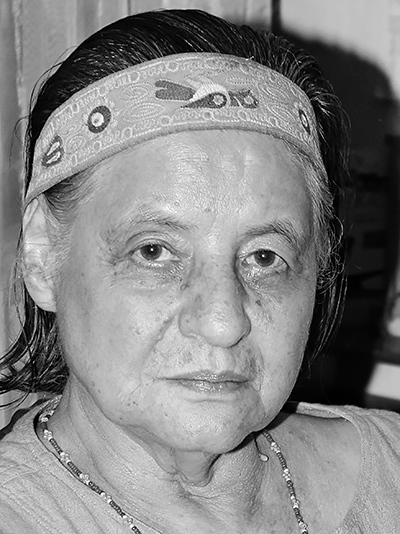
Born in Bogotá, Colombia in 1933. She studied Sociology, Anthropology, Ethnology and Film. Together with her husband Jorge Silva, she worked on Chircales (1971), their first of many joint film projects. Rodríguez still works as a documentary filmmaker.
Filmography
1971 Chircales (The Brickmakers / Ziegelarbeiter); 42 min., co-directed by Jorge Silva · Planas: testimonios de un etnocidio (Plans: Testimony About Ethnocide); 37 min., co-directed by Jorge Silva 1975 Campesinos (Peasants); 51 min., co-directed by Jorge Silva 1980 La voz de los sobrevivientes; 16 min., co-directed by Jorge Silva 1981 Nuestra voz de tierra, memoria y futuro (Our Voice of Land, Memory, and Future); 90 min., co-directed by Jorge Silva, Forum 1982 1987 Nacer de nuevo (To Be Born Again); 30 min. 1989 Amor, mujeres y flores (Love, Women and Flowers); 52 min., co-directed by Jorge Silva 1993 Memoria Viva; 30 min., co-directed by lván Sanjines 1998 Amapola: La flor maldita; 32 min., co-directed by Lucas Silva · Los Hijos del Trueno; 56 min., co-directed by Lucas Silva 2001 La Hoja sagrada; 53 min. · Nunca más; 56 min., co-directed by Fernando Restrepo 2004 Una casa sola se vence; 48 min., co-directed by Fernando Restrepo 2006 Soraya, amor no es olvido; 52 min., co-directed by Fernando Restrepo 2010 Testigos de un etnocidio: memorias de Resistencia; 57 min. 2012 No hay dolor ajeno; 23 min. 2015 La toma del Milenio; 52 min. 2018 La sinfónica de los Andes; co-directed by Lucas Silva
Bio- & filmography as of Berlinale 2019
Jorge Silva
Born in Girardot, Colombia in 1941. He studied Literature and Visual Arts, and worked as a photographer, DP and journalist. He and Marta Rodríguez met in 1965 and later married, and together they made their first joint film, Chircales (1971). Jorge Silva died in 1987.
Filmography
1963 Días de Papel 1971 Chircales (The Brickmakers / Ziegelarbeiter); 42 min., co-directed by Marta Rodríguez · Planas: testimonios de un etnocidio (Plans: Testimony About Ethnocide); 37 min., co-directed by Marta Rodríguez 1975 Campesinos (Peasants); 51 min., co-directed by Marta Rodríguez 1980 La voz de los sobrevivientes; 16 min., co-directed by Marta Rodríguez 1981 Nuestra voz de tierra, memoria y futuro (Our Voice of Land, Memory, and Future); 90 min., co-directed by Marta Rodríguez, Forum 1982 1989 Amor, mujeres y flores (Love, Women and Flowers); 52 min., co-directed by Marta Rodríguez
Bio- & filmography as of Berlinale 2019
